The doctor-patient relationship is based on an assumption that, as a general rule, the doctor knows more about health care than the patient does. This is as it should be: obviously, a patient cannot continue to seek care from a doctor if she comes to believe that the doctor is lacking in skills or knowledge. And a doctor cannot continue to work with a patient if his decisions are constantly being second-guessed. But there is often a grey area between competence and incompetence: what if a patient really respects and admires her physician, but finds one very well-defined area of medical care in which he does not appear to have the expertise demanded of him by his profession? Under such circumstances, it would not be inappropriate for the patient to raise the issue with his doctor and work with him in a constructive and tactful manner to find a solution. But how?
This is not easy. Doctors are slow to change their practices and their ways of thinking. It’s not just a matter of ego. To be effective, doctors must have complete confidence in their abilities and their knowledge base. The stakes are too high to leave any room for self-doubt or equivocation. I would certainly not want to undergo a coronary artery bypass procedure if I knew that my surgeon really didn’t think he was up to the task! But every now and then an issue arises which requires redress, even when the doctor is otherwise at the very top of his game. Such is often the case with breastfeeding management.
According to the Surgeon General’s Call to Action on Breastfeeding, “Inadequate education and training of clinicians has been identified as a major barrier to breastfeeding, and education on breastfeeding is not a core element of most medical schools or residency programs or of programs in nursing education. Unfortunately, there are few opportunities for future physicians and nurses to obtain education and training on breastfeeding, and the information on breastfeeding in medical texts is often incomplete, inconsistent, and inaccurate.” It’s therefore not surprising that many of even the best and the brightest of our physicians may be ill-equipped to provide the families under their care with the breastfeeding assistance and guidance to which they are entitled.
There’s a wonderful quote from Mahatma Gandhi: “There go my people; I must follow them, for I am their leader.” Patients must learn from their doctors, but doctors must also learn from their patients. This is easier said than done. When a competent, conscientious physician realizes that he has been providing the wrong advice about something as central to primary care as infant feeding and nutrition, the lesson can be quite unsettling, even painful. It’s never easy to admit that we’ve been doing an important part of our work the wrong way, especially if we take great pride in our work and we’ve been doing it a long time.
Patients can indeed teach their physicians. First and foremost, in order to be effective, they should listen to what the physician is actually saying (just as they would want their physician to be listening to them). Most acrimonious situations can be prevented if misunderstandings can be avoided. It could very well be that the patient and the physician are closer in their thinking than either might suspect, and finding common ground is the first step toward resolving a problem. One should avoid assuming an adversarial posture and looking for counterproductive “gotcha” moments, which will only make meaningful communication more difficult, if not impossible. A more effective approach is for the patient to frame the disagreement as a question, so that the physician is impelled to think about it and give an honest response. The answer at the moment may not be entirely satisfactory, but if the patient can gracefully disengage from the encounter, neither conceding the point nor pressing his position, there’s a good chance that the physician will give the matter further thought during a more private moment and commence with the uncomfortable process of re-examining untested assumptions. This is especially likely if he hears the same message from other patients. He can dismiss it once or twice, but if he hears it often enough, he is bound to give it his serious attention.
People tend to listen to their own kind. It’s human nature. Musicians listen to musicians, businessmen listen to businessmen, engineers listen to engineers, and doctors listen to doctors. A mother who disagrees with her physician’s approach to a breastfeeding issue might follow up on the matter by discreetly giving him some literature published by an authoritative medical society. If the mother has a strong, mutually respectful relationship with her physician, it is likely that he will take the time to review it. The Academy of Breastfeeding Medicine has published just such a set of protocols, specifically targeted to physicians. The protocols address medical management of common breastfeeding issues and are extremely well researched and rigorously peer-reviewed. They are also designed to be read relatively quickly and can serve as a handy reference for physicians who work with breastfeeding families on a regular basis. Providing the physician with just one protocol (which can be downloaded for free on the Academy website) can serve as an incentive to use many others, and so enable the physician to educate himself on breastfeeding matters about which he may not have been adequately trained.
The mission of the Academy of Breastfeeding Medicine is to fill the gap in medical education identified so well in the Surgeon General’s Call to Action on Breastfeeding. Most physicians were brought up in the same culture as every other American citizen. They learned very little about breastfeeding from their own families, communities and schools, because at the time breastfeeding was an uncommon practice generally assumed not to be of much importance. Today we are beginning to understand just how important it really is. Most mothers now want to breastfeed their infants. They expect their physicians to help them. The Academy of Breastfeeding Medicine will serve as an important resource to provide physicians with the knowledge and skills they will require in order to be effective breastfeeding supporters and advocates in the years ahead.
Gerald Calnen, MD, FABM
President of the Academy of Breastfeeding Medicine
Editor’s note: The ABM clinical protocols cover mother/baby issues that effect breastfeeding and even how physicians can make their offices breastfeeding-friendly. They are printable from the ABM’s website and are a great resource for moms to share with their care providers!
The Support 360 Series is brought to you by PumpEase and Posh Pads!



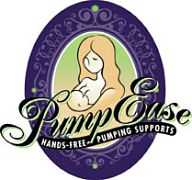

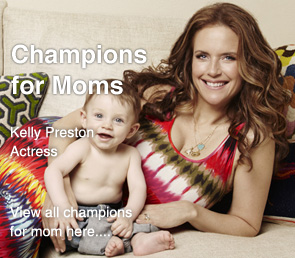
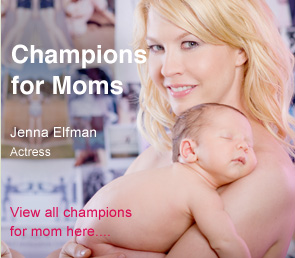

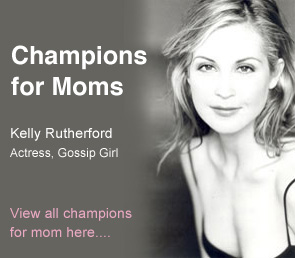
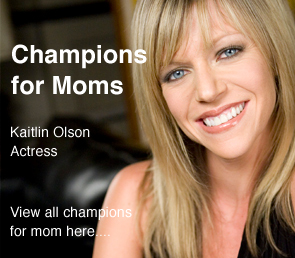
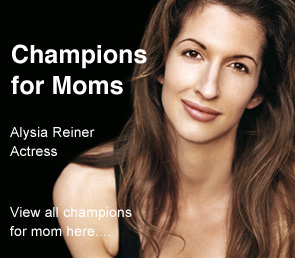
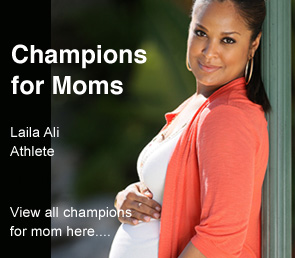
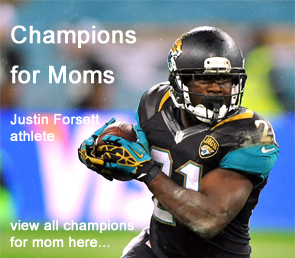
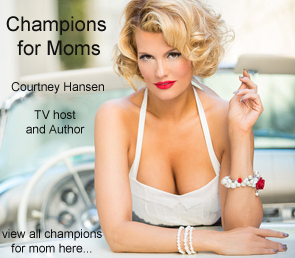

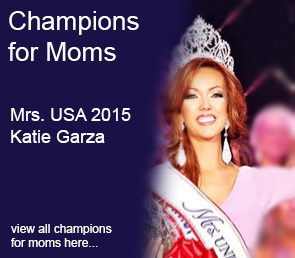


(Copying this comment from Facebook and adding a few things I forgot).:
I left my son’s first doctor b/c he didn’t know much about breastfeeding (he mocked me for planning to use LAM for family planning and recommended solids at 4 months) and other major issues I had with him.
I was able to educate the next doctor after he told me I needed to wean my son to cow’s milk at one year to give him the “fat he needs to grow” and other made-up stuff. I didn’t have the right information with me at the time and was kind of shocked and just said “well, I’m not planning on weaning”.
Later I wrote a detailed and polite letter to him and sent a copy to the supervisor at the clinic, the human resources person, the CEO of the associated hospital, and the patient advocate at the hospital. I mentioned statistics and facts from reputable sources such as the AAP, AAFP, WHO, Ruth Lawrence’s “Breastfeeding: A guide for the medical profession”, and others. I included copies of lots of resources. I got a call from the head pediatrician at the clinic apologizing for the faulty advice and got no mention of cow’s milk or weaning at future appointments. He seemed genuinely sorry for his bad advice and I hope that he can correctly inform future mothers breastfeeding at 12 months that they can wean to cow’s milk, or continue to breastfeed, and that continuing is very healthy for them and their child.
I hope what I did doesn’t seem “adversarial”, I asked at the front desk who I should write to if I had a concern, and they told me who to send copies of my letter to. I wouldn’t tolerate it if my doctor was giving me completely false or made-up information on another topic I would want him to do more than “give the matter further thought”, I would want him or her to get up to speed ASAP.
From this article, it looks like once again patients have to take gentle care of their doctor and not the other way around.
My doctor gave me incorrect breastfeeding advice twice. I didn’t do anything to correct it, mostly because at the time I didn’t know it was incorrect, and also I suppose because I am not a confrontational person.
When the nipple shield I was using (I know, I know) was rubbing against my nipple, I asked if there was a larger size and she said “no, it’s a one-size type deal” (not true — there are 3 common sizes of nipple shields) and when in despiration I was considering shutting down production on my problematic boob, she told me I’d have to pump and bottle feed to make up for not using that side (also not true — though it didn’t come it it, there is a whole army of uni-boobers out there, and how do you think moms feed twins? supply and demand, people).
I figure these are kind of unusual problems. I know that she breastfed both of her own kids, and if she didn’t encounter those kinds of issues, she just doesn’t know much about them. I’m not sure I’d write a letter, just because they seem like kind of small things, you know? Though maybe I should because probably not every mom would do further research to contradict what the doctor had said.
Thank you, Dr. Calnen!
Thank you for taking the time to share your gentle wisdom once again.
Your thoughtful guidance will help foster open communication and collaboration
that will benefit all involved in maternal-child healthcare.
Much appreciation to you and the ABM for the support you provide to mothers, babies and their physicians!
Sheri Garner RN, IBCLC, ANLC
Healthy Children Project, Inc.
I was under the impression that “doctor knows best” until I had to visit a general practitioner with a urinary tract infection when my son was six months old. After my exam, the doctor asked me if I would be interested in prescription urinary pain medication. I expressed concern that it would be unsafe because I was breastfeeding (after all, the over-the-counter meds caution against taking while breastfeeding). He left the exam room to look up whether there would be any of these urinary pain meds that could be prescribed, and also to look up which antibiotics would be safe to take while breastfeeding. When he returned, he advised me to ask the pharmacist about the over-the-counter pain meds, stating that he could find no prescription version that said it was safe. He prescribed an antibiotic, and assured me that it WAS safe and that he had done his research. I went to the pharmacy to fill the prescription, and when I asked the pharmacist about the safety of the pain meds, she advised me NOT to take them. She then said, after looking at the antibiotic prescription, that IT WAS UNSAFE TO TAKE WHILE BREASTFEEDING. The doctor had, even after his “research,” written a prescription for a drug that was unsafe for breastfeeding mothers and babies. The pharmacist then told me I would have to pump while taking the drug, which would be for two weeks. It would have ruined breastfeeding for me and my son, who hates bottles and formulas. I was very resistant to this idea, and the pharmacist ended up finding me a “safe” antibiotic and then getting the doctor’s approval, but his lack of knowledge in this area led to a lot of stress and discomfort for me (the whole time I was dealing with everything, I was in extreme pain from the infection). So, as the article points out, we can’t assume that our doctors know it all.
As both a breastfeeding mom and a physician, I can assure you that in general, anyone who is actually living with a situation (whether breastfeeding or a medical condition) will know more than someone who hasn’t/isn’t. I have been completely pro-breastfeeding my whole life. My mom nursed 6 children for 2-3 years each. I took a breastfeeding elective in medical school and sought out as much other information as I could. While I managed to avoid the more heinous errors, a lot of details escaped me until I had to deal with them myself…suddenly I’ll never forget which antibiotics are safe while breastfeeding (after over 3 years of nursing my son, I unfortunately had several opportunities to take them) and which OTCs are not. I know about a million tricks for mastitis since I got it twice. My experience as a mother far outpaces my knowledge as a doctor in these areas. That said, my experiences are just my experiences…some of them aren’t typical or can’t be generalized to EVERY breastfeeding woman and certainly there is a lot of medical information that isn’t common knowledge. That’s why it’s so important for women and their doctors to work together to ensure appropriate treatment.